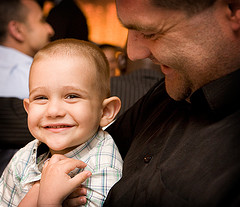

In Columbus, Ohio, child custody lawyers are familiar with the two basic parenting models, shared parenting and sole custody. The basic differences revolve around how decisions on raising and caring for the children are made. As always, it is important to consult with a child custody lawyer when filing a divorce, especially when you have young children. When you settle out of court, you are able to have a more frank and open discussion about custody, and must consider what is best for the child. It is important to work with child custody lawyers who believe Children Matter Most.
Shared parenting allows both parents to make decisions for the children of the marriage. The court generally favors shared parenting, as it allows both parents to have some input on the way in which the child from the marriage is raised. It is important to note that shared parenting does not mean equal time spent with the child. This isn’t a division of time for the child; rather this is a way for the court to outline which parent is able to make decisions that will affect the life of the child. When reviewing your case and making a decision, the court will consider several factors, such as the needs of the child and the ability for both parents to work together. It is important to speak with a child custody lawyer to learn more about shared parenting and if it is right for you and your family after divorce.
Some situations do not lend themselves to shared parenting, and it becomes necessary for only one parent to have sole custody of the child. The parent who has sole custody of the child becomes the parent designated as the residential parent and legal custodian. As such, the parent with sole custody has a major role in decision making for the minor child. He or she has the final say on the child’s pediatrician, education, child care provider or baby sitter, what sports in which the minor child will participate, and religious beliefs, to name a few. This does not mean the parent who does not have custody is unable to visit his or her children—it just means the decisions that would affect the every day life of the child are made by one parent.
Take time to speak with attorneys who focus on child custody law to help decide which type of custody is right for your specific situation. If you are in a situation where you and your spouse barely agree on any aspect of raising your child, it may be difficult to continue with shared parenting. Alternatively, if you and your spouse remain friendly through the proceedings and you have teenaged children, shared parenting may be the perfect parenting style for you after the divorce is final. When making decisions like this, take into account your child’s well-being and mental health. Divorce is hard on children, so it is important to speak to a professional who focuses on child custody and family law to help you discover all the options for your family.
Your children are the most important part of your life, and you want to make sure you gather as much information as possible and speak to a lawyer before making any final decisions about how you divide custody. It is important too that you think about the psychological well-being of your children. If you feel your child is in danger or your soon-to-be ex-spouse suffers from a psychological disorder, it is important to hire attorneys who have training and can help protect your parental rights.
To arrange a mutually convenient time for your initial consultation with a Columbus, Ohio child custody attorney, contact Edward F. Whipps & Associates toll-free at (877) 367-6544.
July 28, 2014
Edward F. Whipps & Associates is excited to announce that on August 1, 2014, we will have a new and…
READ MORE >>